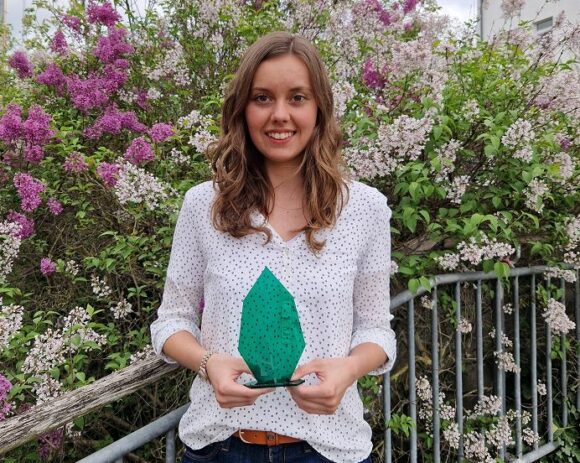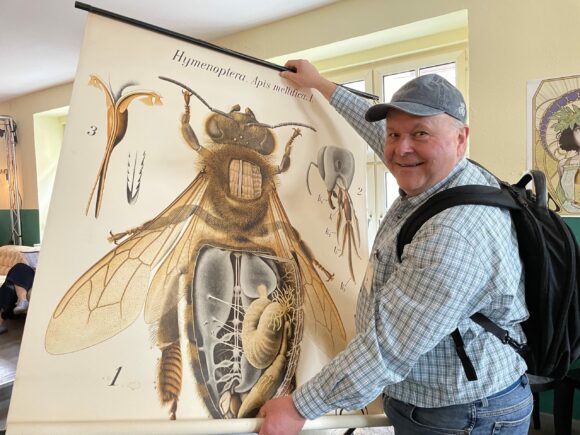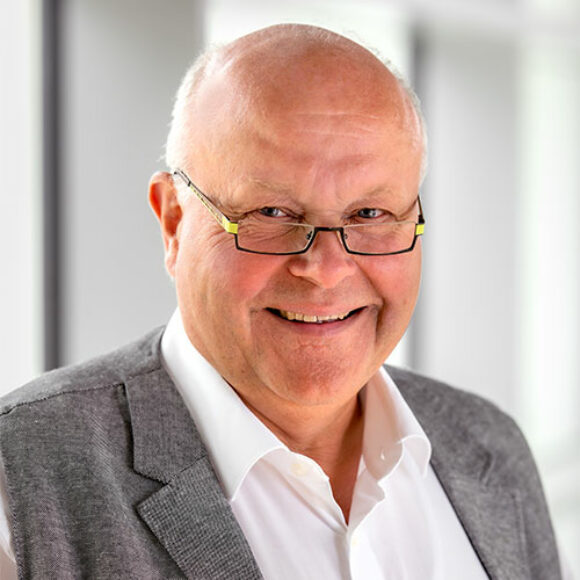The Hofer water scientist Dr. Harvey Harbach from the Institute for Water and Energy Management recently made a research trip to Southeast Asia. The goal of the trip was an exchange between Germany and Vietnam on sustainable environmental technologies. On the agenda were aquaponics and food production (shrimp). A 25-member delegation consisting of students, doctoral candidates, representatives of water treatment companies and non-governmental organizations as well as scientists traveled to three Vietnamese universities, including the Vietnamese-German University in the Mekong Delta.
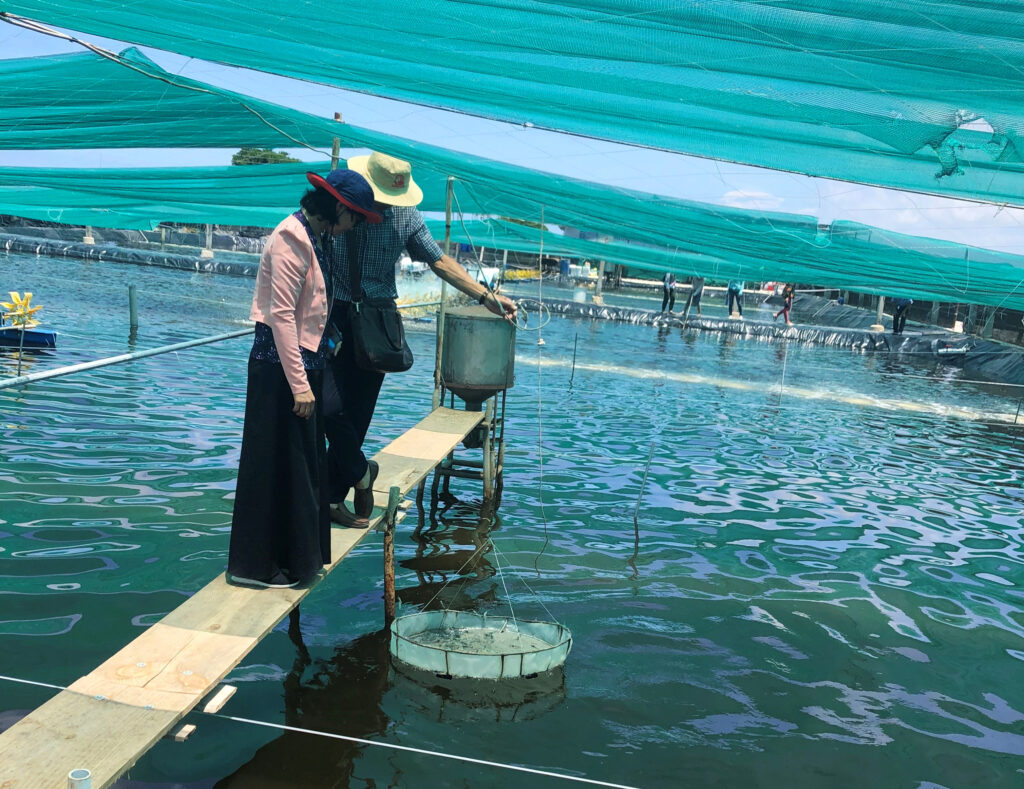
Dr. Harbach, you recently made a trip to Vietnam. What exactly was the occasion?
“The trip was under the guiding theme of “Summer School 2022.” The focus is on knowledge transfer between the participating countries – it’s about advanced training and cultural exchange. In addition, you still have the opportunity to network directly on site in conversation with the cooperation partners to identify common teaching and research practices.”
How did the trip go in detail?
“We were able to get to know different universities. However, we were mainly at Ho Chi Minh University, from there we then made excursions, for example, to the Mekong Delta and also went to the Vietnamese-German University. That’s a super cooperation partner because there’s already international expertise there.”
“We almost didn’t manage a day as it was in the agenda, everything was flexibly adapted. You can only get through that with a smile and a big heart. Nevertheless, everything worked out perfectly.”
Dr. Harvey Harbach
How did the communication work out?
“Let’s take Prof. Anh as an example: he is Vietnamese and speaks German because he has already worked with a German company in Vietnam.
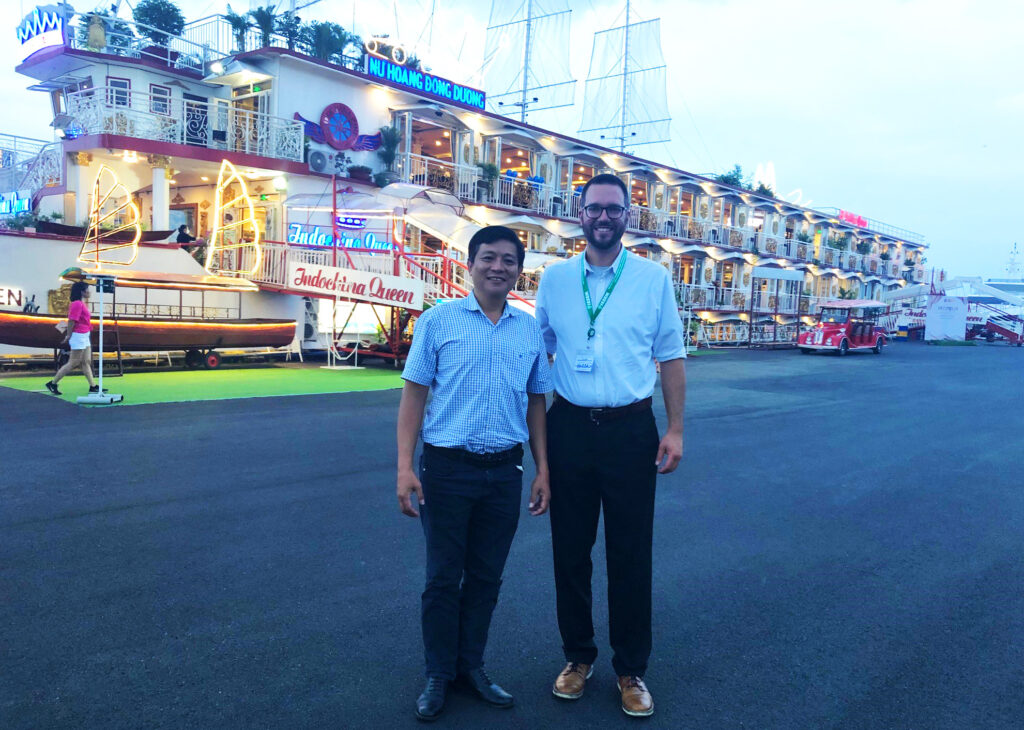
At the university there are also German courses for the students and I was immediately welcomed in German including the special Vietnamese friendliness. That made it very easy for me, because I first had to get used to the English of the Vietnamese, but then I was able to do that.
I particularly appreciated the fact that the participants accepted so-called “murmur groups”. In these groups, the participants do not give a lecture in front of everyone, but talk quietly with each other in small groups and exchange ideas. Our guiding theme was “Sustainable Environmental Technologies” and, in my teaching area, their use in freshwater and saltwater aquaculture.”
Who prepared the trip and what were the planned topics?
“Responsible for the project and the trip was the Magdeburg-Stendal University of Applied Sciences with Prof. Jürgen Wiese, who is a specialist in water treatment and wastewater treatment technology. This is a big topic in Vietnam. Apart from that, of course, there was aquaculture, which is why I was there. A well-known example in Vietnam is shrimp aquaculture, where large amounts of fresh water are used, this could still be reduced. The goal is to use any nutrient resource that is in aquaculture beneficially for the operator. We want to tap into this potential together.”
Such a journey is not cheap, who is funding the project?
“Since aquaculture is a very big issue in Vietnam in terms of sustainability we really wanted to pursue the Vietnam issues and we applied for a trip to the DAAD, which is the German Academic Exchange Service, and fortunately they funded everything. We were on the road for ten days in July and the trip resulted in us continuing now.”
What are the next steps?
“Currently we are working on two different applications. It’s about shrimp aquaculture. Of course, the on-site visit gave me another insight, for example, I was able to collect good info from the companies in order to now incorporate it into the new application.
The second application deals with knowledge transfer from Germany to Vietnam. It’s mainly about food production and possible contamination in the water, i.e. the introduction of microplastics or bacterial contamination into agriculture.”
What were the highlights for you in terms of getting to know the country and its people?
“What I will remember forever is having dinner with the dean of the university on the ship Indochina Queen. We sailed on the Saigon River in Ho Chi Minh in the evening as the lights came on everywhere and had a traditional Vietnamese meal with the view of the city skyline. That was insanely impressive.
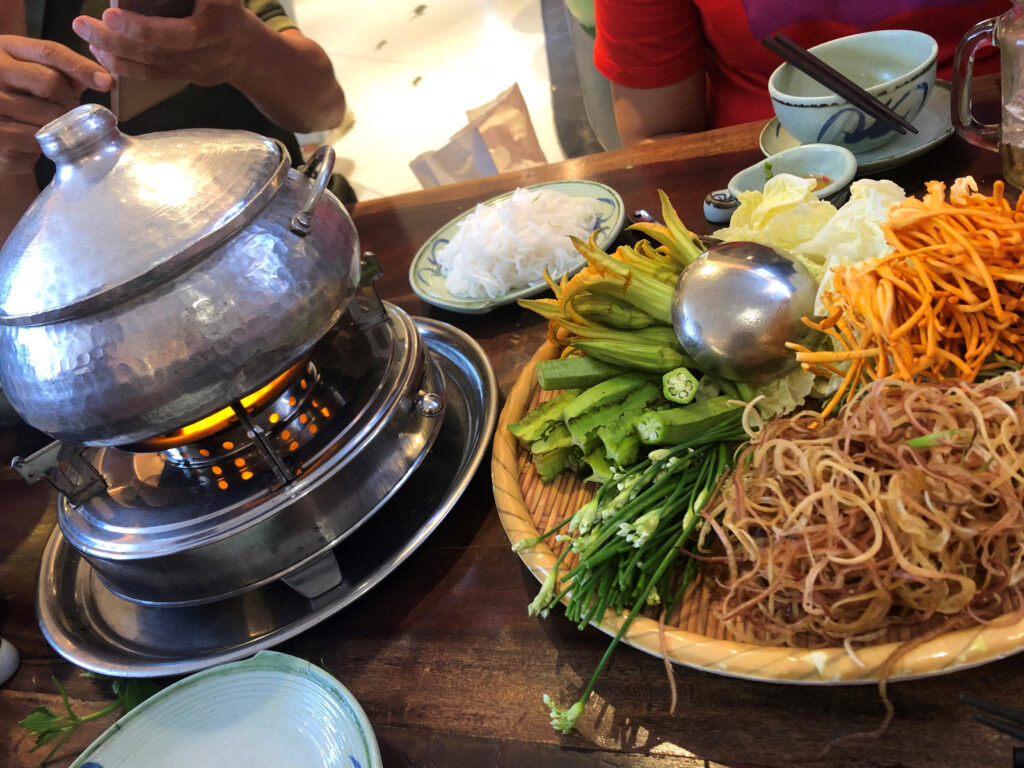
And then another highlight: We were on an excursion by bus and one participant said that we were actually stopping by her house now, we could actually stop by her parents’ house, they would be happy. We then actually stopped at the country road and were driven by her brothers and uncles with motor scooters into the hinterland. There we were spontaneously invited for dinner. I have no idea where that was exactly, but we sat there with great fruits, everything that the Vietnamese cuisine gives and cold drinks. It was blisteringly hot and actually I was looking forward to getting inside, but the houses have open construction, you actually stay outside. I ended up with 50 mosquito bites – despite mosquito cream. But it was worth it.”
Finally, we do have to talk about your flying experiences, research trips are just not without real adventure!
“We flew into a thunderstorm, then the electrical equipment failed and we landed almost next to the runway. The pilot took another pass and went back up and did a few laps. Honestly, I was thankful for my mask because it was jerking and rocking quite a bit, many felt sick with corresponding panic
“Other than the emergency landing, the trip was a wonderful experience. The Vietnamese are incredibly hospitable and warm, it is very easy to get into an exchange. Much like here in Upper Franconia.”
Dr. Harvey Harbach
The famous little bags from the front seat came into play. Then came the emergency landing at the cargo airport in Bangkok and we couldn’t get off for an hour and a half. You can imagine what the air was like on the plane – but I had my mask!”
Fortunately, you returned safely. We’re keeping our fingers crossed for the applications, thanks for talking to us!




